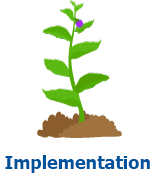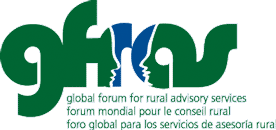 Implementation is the moment in which previously developed and approved policies are put into action. Implementation of policies, however, is not a straightforward, step-by-step task. Implementation also means interpreting contents and break them down to the practical field level. As the theory gets tested with the reality, implementation very often leads to new policy dialogues, and therewith sometimes even to the adaption of the policies. Documents in this section will provide you with resources to better design and execute practical implementation of policies and how to act best within a given policy framework. It also provides resources on the governance, accountability and the needed oversight of policies.
Implementation is the moment in which previously developed and approved policies are put into action. Implementation of policies, however, is not a straightforward, step-by-step task. Implementation also means interpreting contents and break them down to the practical field level. As the theory gets tested with the reality, implementation very often leads to new policy dialogues, and therewith sometimes even to the adaption of the policies. Documents in this section will provide you with resources to better design and execute practical implementation of policies and how to act best within a given policy framework. It also provides resources on the governance, accountability and the needed oversight of policies.
Translating Policy to Practice (6)
Type: Manuals and guidelines (how-to)
The Ministry of Agriculture and Co-operatives has adopted the participatory Extension Approach (PEA) and institutionalized it as the Extension Methodology, to be used in Agricultural Extension
Type: Manuals and guidelines (how-to)
This manual is designed to provide guidelines on key elements of participatory extension approach. It is recommended for all field workers in the Agricultural sector and development workers involved in the facilitation of community development.
Type: Manuals and guidelines (how-to)
This Agricultural Extension MAnual is built on the Agricultural Extension Policy and Strategy for Timor-Leste and serves three purposes: (1) It guides agricultural extensionists and coordinators during planning and field level implementation of agricultural extension activities. (2) It gives guidance to representatives on national and district levels as to their supportive roles in the development of agricultural extension contents. (3) It serves as reference for agricultural extension personnel of donor funded programs, local NGOs, and INGOs working in agricultural extension in Timor-Leste.
Type: Manuals and guidelines (how-to)
This implementation guide includes the four pillars upon which the DAESS is built, tools for facilitating farmers’ demands, the DAESS implementation structure, its functions and its relationship to the Local government structure.
The District Agricultural Extension Services System (DAESS) introduces a new approach to agricultural extension services provision at decentralised levels. The objective of the DAESS is to empower farmers to demand high quality services from those that are best able to provide them. In order to facilitate implementation of DAESS, this guide has been written for all agricultural extension service providers including public and private sectors, Non Governmental Organisations, Community Based Organisations, Faith Based Organisations, and Farmer Based Organisations
Type: Case study, experience, example
Power Point Presentation held at the Workshop on the POlitics of Agricultural Extension Reform in Africa, Institute of Development Studies, UK from 6 to 7 December 2012.
Type: Conceptual (definitions and frameworks)
Policy Brief on a bill for protecting and empowering farmers in Indonesia.

